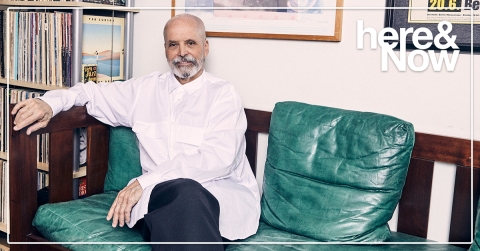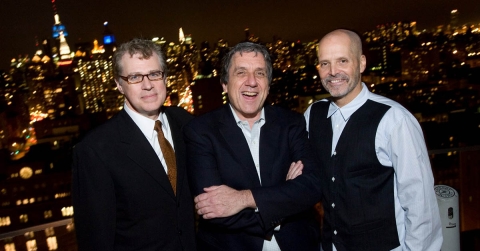All this month, and running through May 12, BBC Radio 2 is airing a six-part documentary called Jac Holzman's Elektra Story, as part of the network's Monday night Music Club. In part three of the documentary, the company founder recounts the Nonesuch Records founder's earliest days and his hopes for the new endeavor. Joshua Rifkin was involved from the start and sums up the label's initial appeal this way: "Inexpensive classical record labels had been there before, but they looked like a budget production. And it was Jac's brilliant idea to think that one could do something that really looked distinctive, did not look low-rent, had a definite identity of its own."
All this month, and running through May 12, BBC Radio 2 is airing a six-part documentary called Jac Holzman's Elektra Story, as part of the network's Monday night Music Club. Over the course of the series, host Paul Gambaccini takes listeners through the two heady decades from Holzman's founding of Elektra Records, in 1950, through 1973, when it became part of the Warner family. During those years, artists from Judy Collins to Tim Buckley to The Doors were signed to the label, and, in 1964, Holzman created Nonesuch Records, primarily as a showcase for high-quality, budget classical recordings.
In part three of the documentary, which aired last night, the company founder recounts the company's earliest days and his hopes for the new endeavor. Musician Joshua Rifkin was involved from the start and went on to record a series of highly successful recordings of Scott Joplin piano rags for Nonesuch in the early 1970s. He sums up the label's initial appeal this way: "Inexpensive classical record labels had been there before, but they looked like a budget production. And it was Jac's brilliant idea to think that one could do something that really looked distinctive, did not look low-rent, had a definite identity of its own."
To listen to the latest episode of Jac Holzman's Elektra Story, visit bbc.co.uk.



